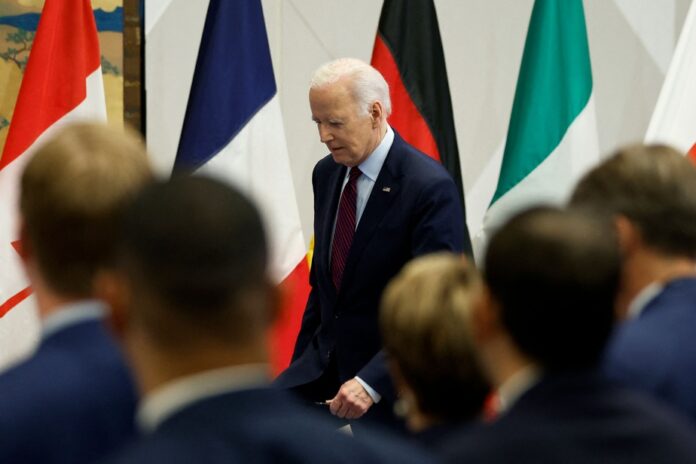(Hiroshima) Halfway through his meeting with US President Joe Biden in Indonesia last fall, Chinese leader Xi Jinping issued a warning.
During the previous months, Joe Biden had signed a series of laws reinforcing the industrial capacity of the United States and restricting the export of technologies to China. The challenge: to dominate the race for green technologies that can support the fight against climate change. At the same time, the Biden administration had worked to convince allied countries to impose similar restrictions.
These efforts mimic the industrial policy through which China has become the world leader in manufacturing. In Bali, Xi Jinping urged Joe Biden to give it up.
The Chinese president’s protests only convinced Mr. Biden that the United States’ new industrial approach was the right one, according to a source familiar with the tenor of the exchange.
During last weekend’s G7 Summit in Hiroshima, Japan, high-level discussions focused on how to accelerate large, internationally coordinated public investments. Democracies want to reduce their reliance on Chinese production and help their own companies compete in the new energy economy.
Mr. Biden’s Legislative Agenda for Industrial Support – Semiconductors, Infrastructure and Green Energy – calls for trillions of dollars in public and private investment in US industrial capacity: electric vehicles, batteries, wind farms, solar power plants , among others, will be eligible for grants.
This industrial policy – unheard of in the US for decades – has galvanized US allies in Europe and Asia, including the G7 countries. Canada, European countries, South Korea and Japan are pushing to improve their access to US subsidies and launching their own green energy aid programs.
“This race for clean technologies is an opportunity to go faster and further, together,” said Ursula von der Leyen, President of the European Commission, after an economic workshop at the G7 Summit on Friday: “ We are in this race together, our competition should add production capacity” and not come at the expense of some and to the benefit of others, she added.
This project began to take shape after last year’s G7 Summit in the German Alps.
The G7’s recent actions against China – to strengthen their supply chains, semiconductor industries and other sectors – are motivated by “economic security, national security and energy security”, Rahm Emanuel said. , United States Ambassador to Tokyo, a few days ago.
According to Emanuel, G7 leaders are increasingly critical of the economic measures used by Beijing to punish and deter foreign companies and governments whose actions displease the Chinese authorities.
But most of that change comes from the urgency of climate action and two laws Mr. Biden signed in 2022: one subsidizes the semiconductor industry to the tune of tens of billions of dollars; the other, the Curbing Inflation Act, includes significant climate-related incentives. Companies have flocked to these opportunities.
These laws have prompted a wave of announcements in the United States, on the construction of battery and solar panel factories, in particular. They have also sparked an international subsidy race, as they have caused friction with US-allied countries.
Generous US aid for green energy and semiconductors – accompanied by tougher Buy American demands on steel, vehicles and equipment – has, for example, sparked protests among allied countries, which have sectors in competition with American companies.
These concerns have since been partially allayed. The United States signed an agreement with Japan in March: battery components made there will be eligible for relief under the Inflation Reduction Act. The European Union is negotiating a similar deal and preparing its own grants – $270 billion – for green industries. Canada passed a law inspired by American aid. The UK, Indonesia and other countries are working on bills that would secure their supply of strategic minerals.
According to US officials, the allies, initially agitated, now recognize the potential benefits of a concerted industrial strategy of the democracies.

